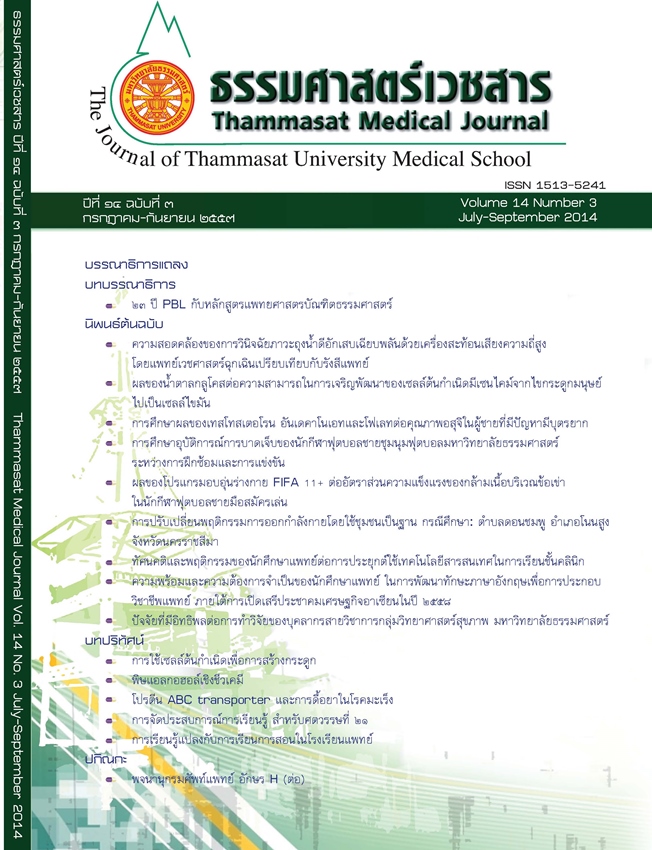Perceived readiness and needs of medical students to improve English language skills in medical practice under ASEAN Economic Community (AEC) liberalization in the year 2015
Keywords:
Perceived readiness and needs, Medical students, English language skills in medical practice, ASEAN Economic Community (AEC) liberalization 2015Abstract
Introduction: ASEAN Economic Community (AEC) liberalization will permit free flow of goods, services, investment, andskilled labors within the community. This may increase the use of English language in medical practice. Students, preparation of English language skills during the study of the program is crucial. This study was aimed to analyze the students, self-evaluation of perceived readiness and needs to improve English language skills in medical practice under the AEC liberalization in the year 2015.
Method: The study was a cross-sectional survey, using a five-level Likert scale (1-5) research questionnaire to collect data from 150 students in the final year of medical program of the Faculty of Medicine, Naresuan University during the academic year 2013. The data were statistically analyzed by calculating percentage, mean, and standard deviation.
Results: Of all 149 (99.3%) completed questionnaires, there were 69 males and 78 females participating in the study. The average age was 26.11 years old. Most of the students were monolingual Thai native speakers who could use English as a second language at basic to intermediate levels (95.3%). 129 (86.6%) of medical students had heard about the AEC liberalization 2015, and considered that this might increase the use of English language in their medical practice. The student,s perceived readiness of English reading skills in medical practice appeared at good level (3.83 ± 0.669), higher than all other skills which were appeared at moderate level, including writing, listening, and speaking. Training of these skills during the medical program was not enough. The student,s needed to improve all English language skills were still at high level, consisting of speaking (4.04 ± 0.816), listening (4.00 ± 0.753), writing (3.93 ± 0.869), and reading (3.83 ± 0.906).
Discussion and Conclusion: Perceived readiness of the final year medical students at Naresuan University to perform English language skills in medical practice appeared in moderate-good levels, especially reading skills. However, trainin of these skills during the medical program was not enough. Medical instructions which permit training of English language skills, especially speaking skills, should be additionally provided.
Key words: Perceived readiness and needs, Medical students, English language skills in medical practice, ASEAN Economic Community (AEC) liberalization 2015



